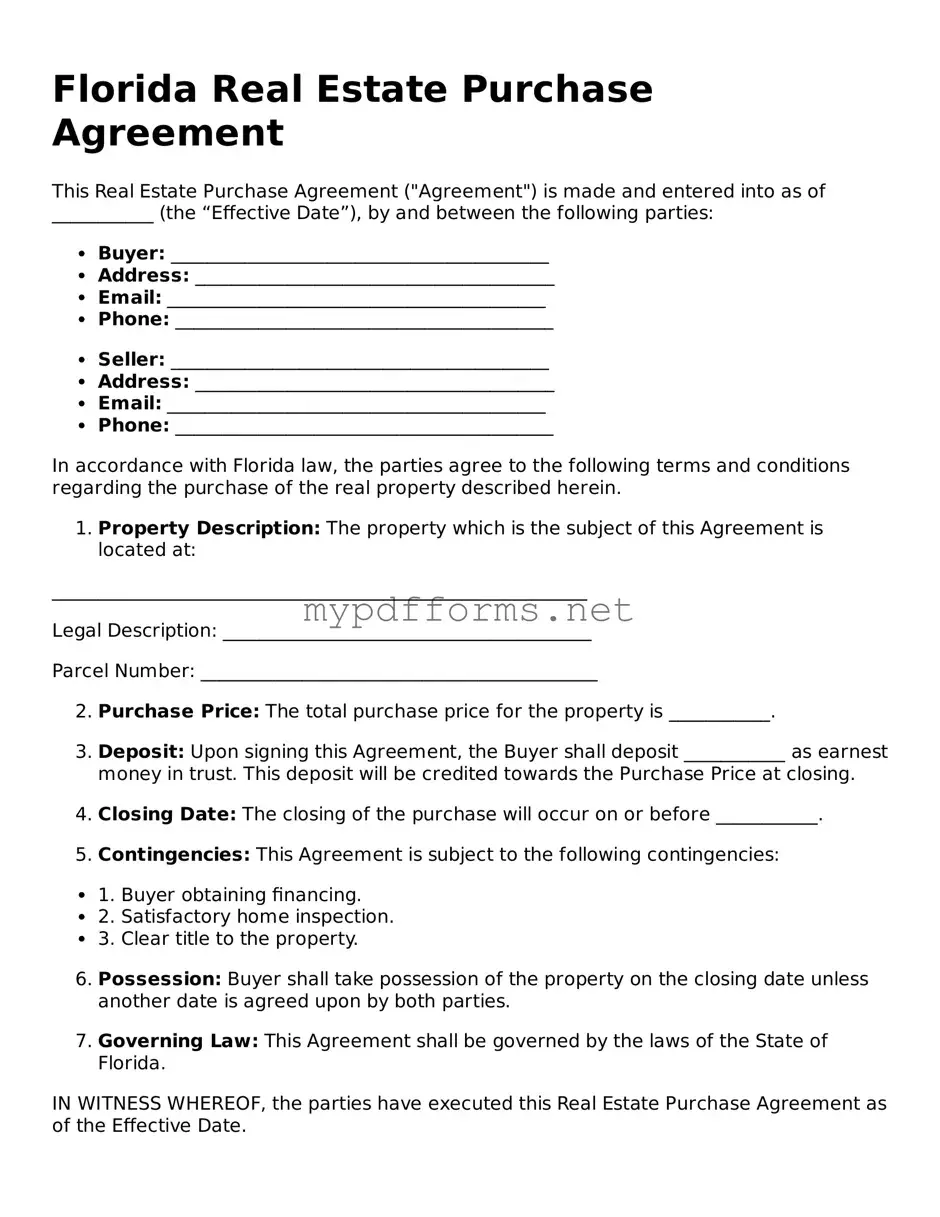Attorney-Verified Real Estate Purchase Agreement Document for Florida
The Florida Real Estate Purchase Agreement form is a legal document that outlines the terms and conditions for the sale of real property in Florida. This agreement serves as a crucial tool for both buyers and sellers, ensuring that all parties understand their rights and obligations during the transaction. It is essential to complete this form accurately to facilitate a smooth real estate transaction.
To get started on your real estate journey, fill out the form by clicking the button below.
Modify Document Here

Attorney-Verified Real Estate Purchase Agreement Document for Florida
Modify Document Here

Modify Document Here
or
⇓ PDF
Need to check this off quickly?
Edit and complete Real Estate Purchase Agreement online in just a few steps.